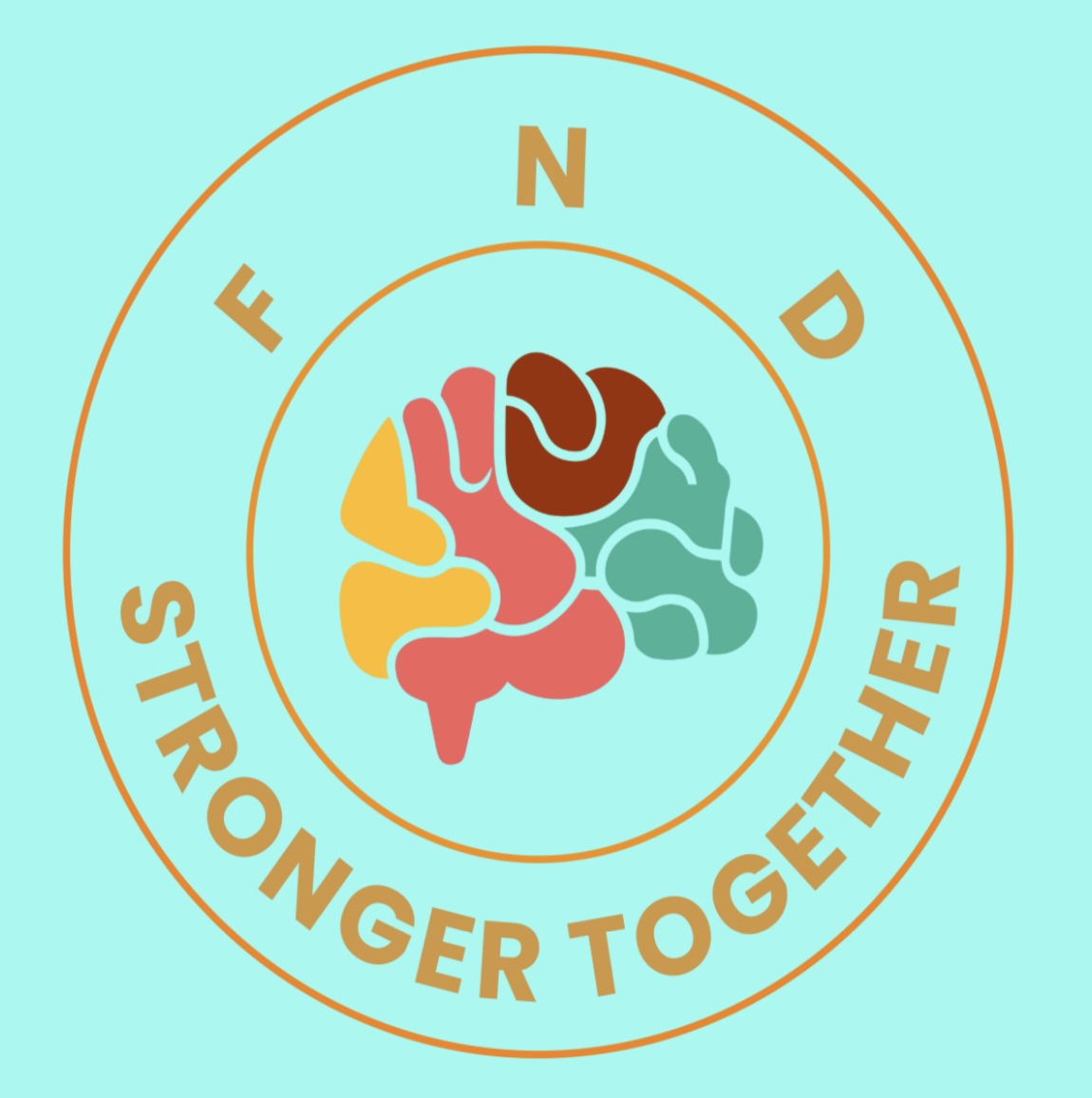
Hello, Feel free to use the contact form underneath to reach out to us.
FND Stronger Together FAQ
What is Functional Neurological Disorder (FND)?
Functional Neurological Disorder (FND) is a real neurological condition and it is not ‘All in your Head’ , it is caused by a problem with the nervous system’s functioning (like a software issue, not hardware damage)
What are the common symptoms of FND?
Common symptoms include movement difficulties such as weakness, tremors, and gait problems; seizure-like episodes; sensory changes like numbness or pain; cognitive issues such as brain fog; and fatigue. It is important to recognise that symptoms vary from person to person and can fluctuate over time.
Is FND a psychological disorder?
No, FND is a genuine neurological disorder. While stress, trauma, or emotional factors may act as triggers or occur alongside it, they are not the only causes. FND is not ‘made up’ or ‘feigned’
Is FND treatable, and can I recover?
Yes, FND is treatable and recovery/significant improvement is often possible. This is done through rehabilitation and “brain retraining.” It is important to be aware that it’s a journey, not a quick fix and the amount of recovery varies in each patient,
Where can I find an FND specialist or get support?
You need to contact your general practitioner (GP) for a referral to a neurologist experienced in FND. There are many facebook peer to peer groups available and also different organisations like FND Hope, neurosymtoms.org and CAP TNF (French)
Is the information on this website medical advice?
No, the information on this website is for general educational and informational purposes only, and does not constitute medical advice. Always consult with a qualified healthcare professional for diagnosis and treatment of any medical condition.
How is FND diagnosed?
The diagnosis of FND is made by a neurologist based on specific physical signs observed during an examination, not just by ruling out other conditions. Note that brain scans are usually normal, which is consistent with FND.
What types of treatment are available for FND?
Treatment for FND is carried out in a multidisciplinary approach. Physiotherapy: For movement symptoms. Occupational Therapy: For daily activities and energy management. Psychological Therapy (e.g., CBT): For managing triggers, coping, and co-occurring issues like anxiety/depression (Be aware it’s not “therapy to cure FND”). Speech Therapy (if applicable).
What should I do if my FND symptoms suddenly get worse (a relapse)?
Try known coping strategies, prioritise rest, and consider if there’s a recent trigger (stress, illness). It is recommended to discus persistent or severe worsening of your symptoms with your healthcare team.
